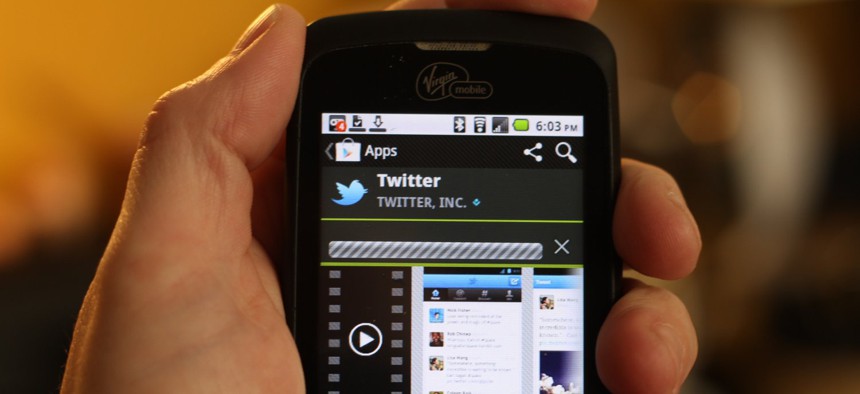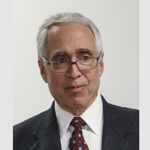
Flickr user hank Mitchell
Donald Trump Should Stop Tweeting and Start Learning
The only way to achieve his goals is to turn off Twitter and start listening to experts in government operations.
For many presidents, the transition into office turns out to be their Achilles heel in political battle. Effective transitions involve much more than interviewing gaggles of potential appointees, rock stars, sychophants and even the occasional professional skateboarder. Filling the cabinet and staffing the White House is serious work that makes a difference to the country, but Donald Trump will be held accountable for every decision his appointees make, including the government breakdowns they oversee and scandals they may create.
At least to date, however, Trump’s transition has been more like one of Linda McMahon’s WWE cage matches than a rigorous introduction to the federal bureaucracy and its many missions. The candidates for positions in the Trump administration are introduced under the bright lights, the ringleader praises their records, and the fight for position begins. Some contestants are humiliated, others rise to the finals, but only a handful survive.
At least to date, the only players not in this contest are the career government executives who are in position to brief the president-elect and his team. If Trump believes these executives will waste his time and impede his agenda, he is absolutely wrong. Both Democratic and Republican presidents have come into office assuming that civil servants are tireless defenders of the status quo and potential saboteurs. But they soon learn the vast majority of them are deeply committed to implementing the president’s agenda while faithfully executing the laws. The career service is also a source of desperately needed counsel on how government works.
Alas, Trump doesn’t seem to be very interested in briefings from government officials, even on matters of national security. He’s getting most of his advice from business executives. Only 8 percent of President Obama’s first round of cabinet choices came from the business world, but in Trump’s case the figure is likely to be two-thirds or more. There is nothing wrong with business or congressional experience in the cabinet after ethical conflicts are resolved, but there is always value in balancing the team with at a mix of people that have previous government experience. There is even good cause to consider senior career civil servants for the management posts that demand intimate knowledge about how to integrate vision with execution.
Trump’s White House team will not provide much in the way of experience in governing, either. His chief of staff, Reince Priebus, and senior counselor, Steve Bannon, have a long history of criticizing Washington, but neither has the bureaucratic skills of a Valerie Jarrett or Karl Rove. Proximity is power in the White House, but knowledge is impact in a government that employs 7 million federal, contract and grant employees and will spend $4 trillion in Trump’s first year alone.
Whatever Trump learns by Jan. 20, he will face intense pressure to “move it or lose it” before his political capital runs out. He would do well to heed Lyndon Johnson’s advice on: “I keep hitting hard because I know this honeymoon won’t last,” Johnson told his staff after his landslide victory in 1964.
First-term presidents who can tolerate endless briefings, long memos, and even short summaries can accelerate the process of gaining expertise. They get better at their job every day. Trump knows how to fire apprentices and negotiate real estate deals, but being president is a lot more complicated.
Trump’s problem is that the cycles of decreasing political capital and increasing expertise run in opposite directions: Presidents generally have their greatest influence when they know the least about their jobs, and their least influence when they know the most about what to do. Trump is certainly smart, but right now, he doesn’t know what he doesn’t know.
America will be able to tell whether Trump is learning by the volume of his tweets. He has never been one to sleep through the night, but he will be a better president if he picks up a briefing book instead of his smartphone at 3 a.m. Trump has already skipped the reading he should have done months ago and seems unlikely to get full briefings from the transition landing teams that have entered federal agencies.
His best option, therefore, is to use that phone to download the Government Accountability Office transition app. It provides quick access to the agency’s top recommendations for improving government operations and links directly to GAO’s high-risk list of troubled programs and a rundown of the top challenges facing the nation. Every item is organized by topic and agency. The app would give Trump a primer on reducing the federal government’s $500 billion backlog of improper payments and delinquent taxes. In the process, it would help him fulfill his pledge to cut fraud, waste and abuse so fast it will make your head spin.
The app would also link him to GAO’s history of the failed hiring freezes that have always done more harm than good. He would learn that most of the damage from freezes occurs at the bottom of government, where the attrition rate is highest and the need for new talent the greatest. Trump might even end up asking himself whether he would ever use such a blunt instrument to manage his own workforce.
The app is so easy to use that Trump might even be free to send a tweet now and then. He could easily toggle back and forth between GAO and Twitter, becoming the first president to learn his job while tweeting along the way. But learning comes first in the cycle of decreasing influence. It’s the only way to secure the high place in history Trump wants.
Paul C. Light is Paulette Goddard Professor of Public Service at New York University.
Photo: Flickr user hank Mitchell







